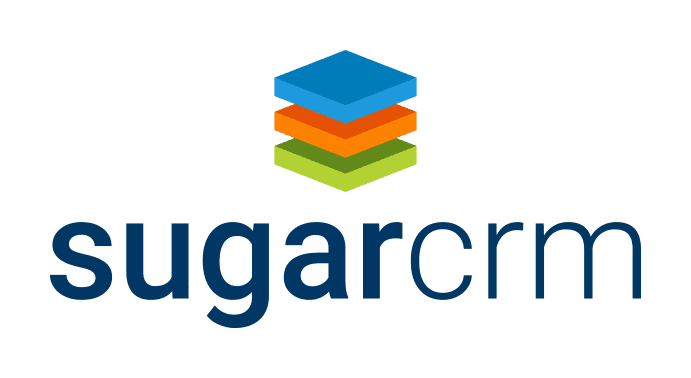The Chief Financial Officer role has radically transformed over the past few decades. With the birth of digital technologies and rapid changes in the business landscape, the responsibilities and expectations placed on the modern CFO have quietly and significantly evolved.
Understanding the differences between the CFO’s role in the digital age and its role pre-digitization is crucial for finance leaders who wish to stay relevant, effective, and successful in their positions.
We wanted to learn the key differences between the traditional CFO and the modern CFO in the context of digital transformation, so we looked at the expanded responsibilities and aspects of a CFO’s role in the digital age and the priorities they should focus on to secure their professional future.
We uncovered that as the finance function continues to adapt to the fast-paced and increasingly digital business environment, it is essential for CFOs to embrace change, drive innovation, and lead their organizations forward.
The CFO Pre-digitization: An Entirely Different Role
Before widespread digitization, the role of the CFO was primarily focused on traditional financial management tasks, things like financial reporting, budgeting, forecasting, and maybe ensuring regulatory compliance. Back then, CFOs were expected to do little more than maintain accurate financial records, control costs, manage cash flows, and monitor the organization’s financial health.
What’s inside the ERP Evaluation Checklist
- Tips for starting your ERP search
- How to consider stakeholders across teams (Finance, HR, Sales, Marketing, Service, etc.)
- How to consider the tools, systems, and skills are required to use the ERP you choose
- Considerations you can’t miss for ERP project success to help you decide
That’s because that’s all the technology of the day allowed them to do, with CFOs working from limited technology options and slower adoption rates working with other organizations that were less reliant on digital tools and platforms.
CFOs operated in a more siloed environment, focusing mainly on the finance function itself. Collaboration with other departments and C-suite executives could’ve been more encouraged, as was the need to prioritize customer experience or drive innovation within the organization.
But in the end, the CFO’s role pre-digitization was more narrowly focused and less strategically oriented, with finance leaders primarily responsible for maintaining financial stability and ensuring compliance with regulatory requirements. The role has since transformed.
The Modern CFO’s Role in the Digital Age
The digital age has brought about significant changes in the role of the CFO, leading to an expansion of responsibilities and a shift in focus. Today’s CFO must navigate a complex landscape of new technologies, increased data volumes, and evolving regulations.
Here are some of the key differences experienced by the modern CFO’s role in the digital age:
Strategy development and execution – Modern CFOs are expected to identify and leverage digital technologies to improve efficiency, reduce costs, and drive growth. In a 2022 Gartner release, 89% percent of board directors say that digital business is now embedded in all business growth strategies; 69% of board directors said they expect CFOs to lead and execute digital transformation initiatives within their organizations.
Data-driven decision-making – According to a 2021 Deloitte study, 84% of finance leaders believe that advanced data analytics are critical to achieving their strategic goals. You may have noticed the modern CFO leverages tools like AI and machine learning to gain deeper insights, enhance forecasting accuracy, and drive strategic decision-making.
Cybersecurity and risk management – In a PwC survey, 74% of CFOs reported that they are responsible for managing cybersecurity risks within their organizations. – CFOs in the digital age must ensure robust data protection measures are in place and maintain compliance with evolving regulations.
Get the ERP Evaluation Checklist – Use this checklist along with our 8 Tips for Successful ERP Evaluation to discover what to look for in a new ERP platform, strategic ways to evaluate your needs, and ensure your team is on board.
Driving innovation – CFOs today are expected to identify new technologies, processes, and business models that can add value to the organization and foster a culture of innovation. A study found that 70% of CFOs believe their role has become more focused on innovation and transformation.
Talent management – In a recent KPMG report, 80% of CFOs acknowledged the importance of attracting and retaining talent with digital skills for the future success of their finance function.The modern CFO must oversee a diverse workforce with expertise in digital technologies, analytics, and cybersecurity, while fostering a culture of continuous learning.
Collaboration and communication – We also found that 68% of CFOs consider cross-functional collaboration and communication essential for their success. CFOs must work closely with other C-suite executives and departments to ensure seamless integration of digital initiatives across the organization, and engage with key stakeholders to communicate the benefits and progress of digital transformation.
Enhancing customer experience – 73% of CFOs recognize the importance of leveraging digital tools to improve customer experience and drive growth, we found. In the digital age, CFOs must focus on streamlining processes, improving transparency, and offering personalized services to create a more customer-centric organization and strengthen customer relationships.
Since the modern CFO’s role has become more strategic, collaborative, and innovative, how would they go about staying relevant?
How the Modern CFO Secure Their Future
CFOs today need to focus on some key priorities that will strengthen their organizations and solidify their positions as strategic leaders.
Here are a few that top the list:
1. Be an Agile Digital Leader
First and foremost, CFOs must embrace and lead digital transformation efforts, helping their organizations identify and implement cutting-edge technologies that can improve efficiency, reduce costs, and drive growth. By staying ahead of the curve and understanding industry trends, CFOs can adapt to emerging technologies and business models more agile.
2. Promote Continuous Learning
Today’s CFO needs new priorities to attract and retain top talent while nurturing the next generation of finance leaders. Talent management and skill development should be one of them. By fostering a culture of continuous learning, they can ensure their finance teams have the necessary skills and expertise to navigate the challenges of the digital age.
3. Reach Across Functions
Lastly, building strong collaboration with other C-suite executives and departments is crucial for the modern CFO. Cross-functional cooperation is vital for successfully integrating digital initiatives across the organization, and the CFO must play a central role in facilitating these collaborations.
By engaging with key stakeholders and effectively communicating the benefits of digital transformation, CFOs can help drive change and secure the long-term success of their organizations. By focusing on these key priorities – leading digital transformation, prioritizing talent management, and fostering collaboration – modern CFOs can navigate the complexities of the digital age and stay relevant for years to come.

